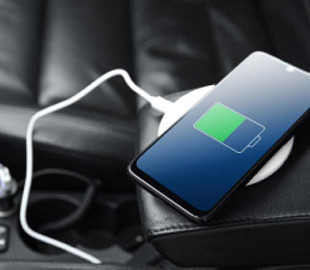
More and more smartphone owners are opting for wireless charging.
It's convenient, effective, and looks a bit futuristic. But can wireless charging completely replace its wired predecessor? Experts from the Bibliotech portal compared wired and wireless charging.
Versatility
In this category, wireless charging is the clear winner. It supports a wide range of gadgets: you can charge a smartphone, watch, and other modern portable electronics. Wired charging, on the other hand, depends on specific connectors, which makes it much less universal in terms of device compatibility.
Efficiency
Wired charging compensates for its less versatility with efficiency. It will charge the device much faster than its wireless counterpart. Yes, wireless charging technologies are improving, but as of now, wired charging wins in this category.
At the same time, there is another advantage: when connected to wired charging, there is no point in worrying that the charging process will “fly off”, while leaving the phone unattended on wireless charging, there is no guarantee that, for example, your cat will move the phone and the charging process will be interrupted.
Mobility
One of the most significant advantages of wireless chargers is their convenience. Simply place the charging pad on your desk, then place your phone or watch on it and avoid getting tangled in dozens of cables that often clutter your workspace. Wired charging cannot boast of this.
Durability
You may be surprised, but according to experts, wireless charging is more durable than wired. It is believed that the lack of physical connectors and frequent connection/disconnection reduces wear and tear on the charging equipment.
Wired charging is the constant use of charging ports and cables, which leads to their wear and tear. However, if you take care of your devices, any charger will “live” for a long time.
Money criterion
Wired chargers are definitely cheaper than their wireless counterparts, and therefore more affordable. This makes them the winner in this category.
